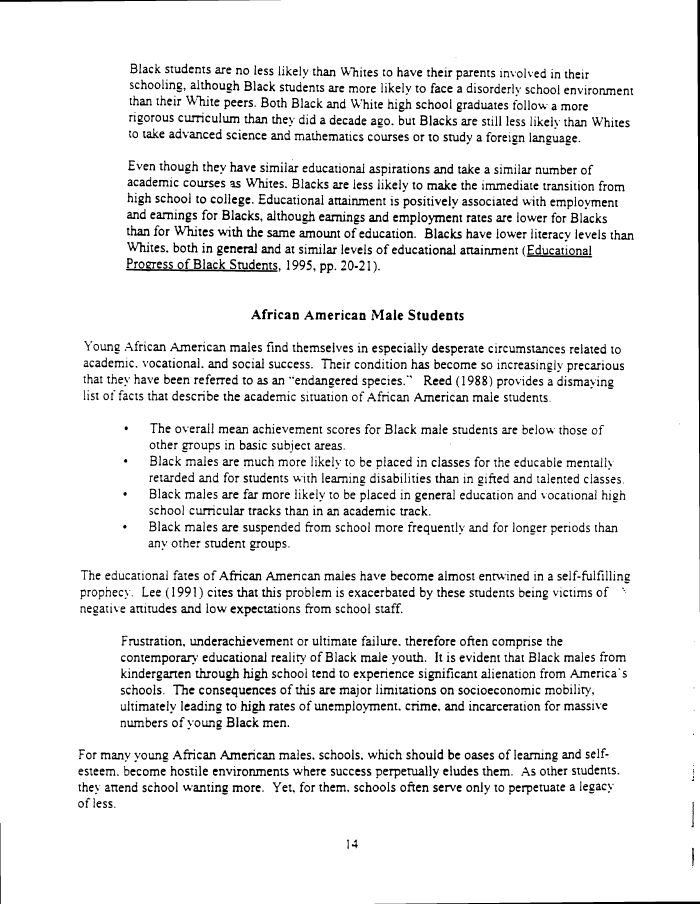 |
||||
|
TASK FORCE TO STUDY THE HISTORY AND LEGACY OF SLAVERY IN MARYLAND (Final Report) 1999/12/31 MdHR 991422 MdHR 991422, Image No: 193 Print image (78K) |
 |
||||
|
TASK FORCE TO STUDY THE HISTORY AND LEGACY OF SLAVERY IN MARYLAND (Final Report) 1999/12/31 MdHR 991422 MdHR 991422, Image No: 193 Print image (78K) |
| Black students are no less likely than Whites to have their parents involved in their schooling, although Black students are more likely to face a disorderly school environment than their White peers. Both Black and White high school graduates follow a more rigorous curriculum than they did a decade ago. but Blacks are still less likely than Whites to take advanced science and mathematics courses or to study a foreign language. Even though they have similar educational aspirations and take a similar number of academic courses as Whites. Blacks are less likely to make the immediate transition from high school to college. Educational attainment is positively associated with employmeni and earnings for Blacks, although earnings and employment rates are lower for Blacks than for Whites with the same amount of education. Blacks have lower literacy levels than Whites, both in general and at similar levels of educational attainment (Educational Progress of Black Students. 1995, pp. 20-21). African American Male Students Young African American males find themselves in especially desperate circumstances related to academic, vocational, and social success. Their condition has become so increasingly precarious that they have been referred to as an "endangered species." Reed (1988) provides a dismaying list of facts that describe the academic situation of African American male students. • The overall mean achievement scores for Black male students are below those of other groups in basic subject areas. • Black males are much more likely to be placed in classes for the educable mentally retarded and for students with learning disabilities than in gifted and talented classes. • Black males are far more likely to be placed in general education and vocational high school curricular tracks than in an academic track. • Black males are suspended from school more frequently and for longer periods than any other student groups. The educational fates of African American males have become almost entwined in a self-fulfilling prophecy. Lee (1991) cites that this problem is exacerbated by these students being victims of •• negative attitudes and low expectations from school staff. Frustration, underachievement or ultimate failure, therefore often comprise the contemporary educational reality of Black maie youth. It is evident that Black males from kindergarten through high school tend to experience significant alienation from America's schools. The consequences of this are major limitations on socioeconomic mobility, ultimately leading to high rates of unemployment, crime, and incarceration for massive numbers of young Black men. For many young African American males, schools, which should be oases of learning and self-esteem, become hostile environments where success perpetually eludes them. As other students, they attend school wanting more. Yet, for them, schools often serve only to perpetuate a legacy of less. |